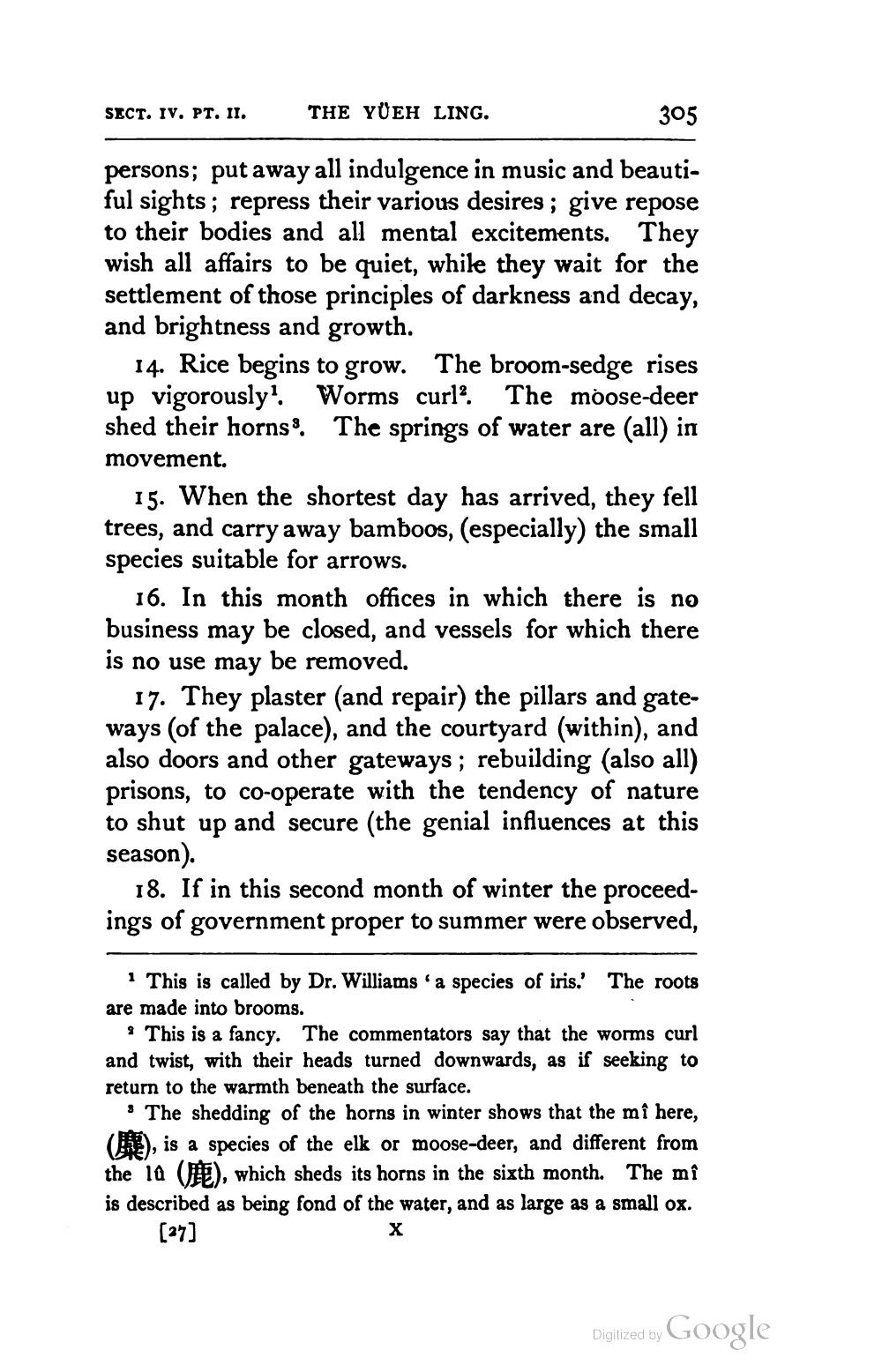________________
SECT. IV. PT. II.
THE YÜEH LING.
305
persons; put away all indulgence in music and beautiful sights; repress their various desires ; give repose to their bodies and all mental excitements. They wish all affairs to be quiet, while they wait for the settlement of those principles of darkness and decay, and brightness and growth.
14. Rice begins to grow. The broom-sedge rises up vigorously' Worms curl?. The moose-deer shed their horns. The springs of water are (all) in movement.
15. When the shortest day has arrived, they fell trees, and carry away bamboos, (especially) the small species suitable for arrows.
16. In this month offices in which there is no business may be closed, and vessels for which there is no use may be removed.
17. They plaster (and repair) the pillars and gateways (of the palace), and the courtyard (within), and also doors and other gateways ; rebuilding (also all) prisons, to co-operate with the tendency of nature to shut up and secure (the genial influences at this season).
18. If in this second month of winter the proceedings of government proper to summer were observed,
* This is called by Dr. Williams a species of iris.' The roots are made into brooms.
· This is a fancy. The commentators say that the worms curl and twist, with their heads turned downwards, as if seeking to return to the warmth beneath the surface.
: The shedding of the horns in winter shows that the mi here, (), is a species of the elk or moose-deer, and different from the lů (2), which sheds its horns in the sixth month. The mi is described as being fond of the water, and as large as a small ox.
[27]
Digitized by Google




